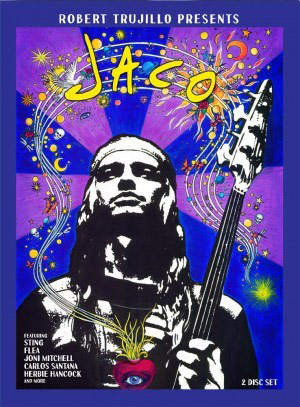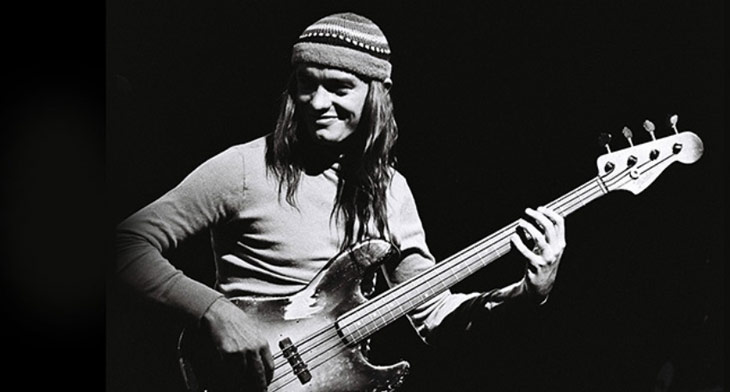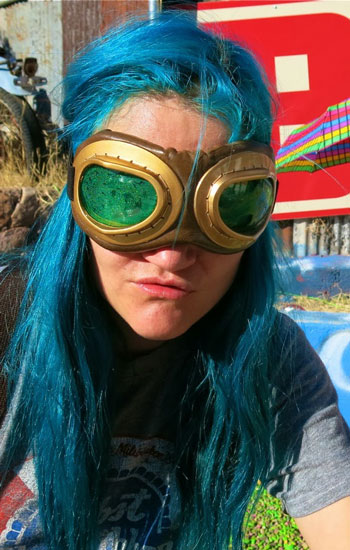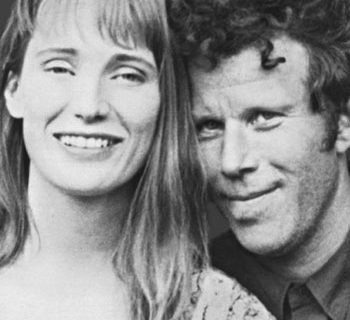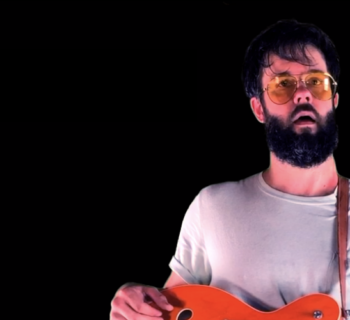Jaco Documentary-New on Netflix
It amazes me when someone comes along and so visibly and powerfully effects the world and everything that happens in it after his arrival. We all effect the world in some way but not many have done it in the way that Jaco has. The world of music is changed forever because of this great man. I don’t believe that there is a bass player playing today that has not been influenced by Jaco, Whether he/she knows it or not.
Victor Wooten
The span of musical history has rendered many great musicians. Technical proficiency, a good ear, a feel for rhythm and meter and a sense of where to sit in the composition are the hallmarks of these players. Every so often, someone comes along and throws a grenade in to “tear the roof of the sucka,” as George Clinton put so eloquently.
Hendrix, Van Halen, and John Coltrane are examples of musicians that redefined the parameters of what their instruments could do. Before Hendrix the guitar sat in the corner of the rhythm section chunking out chords with an occasional lead fill. After Hendrix, the guitar rose up and bitch slapped popular music, never to be the same again.
Jaco Pastorius was one such player. Before Patorius, the bass was regulated to the bottom, with a lot of root playing and whole notes. After Pastorius, the bass played melody, harmonics, syncopated funk, and blistering lead lines. No longer sitting in the back of the bus, the bass took the spotlight and crossed into new realms of rhythm and sound. Without Pastorius, there would be no Victor Wooten, no Marcus Miller, no Flea, and no Robert Trujillo.
Trujillo’s documentary JACO explores this extraordinary player, his music and his legacy.
The first thing I want to talk about is the Jaco film.
Robert Trujillo: Yeah I am really excited! We’ve been working on this thing for over five years. It’s been a very difficult but special journey for me, to make a film, especially a documentary film of quality, you know, something that will actually get released, that people will see.
That will stand up to the other quality of documentaries.
RT: Yeah, yes exactly. There’s got to be commitment. The commitment is financing and getting the right team of filmmakers. And that I became very passionate about it.
Originally we started working with a company called Passion Pictures, which has had a lot of success with their films like Searching for Sugar Man, Pat Tillman Story, and Restrepo, but then it just got too expensive. I mean it was insane. It got to sort of to a critical stage. And then I was able to pull together a lot of guys from the film team who are really great friends, who also cared about the project, and we continued forward.
My director Paul Marchand, he’s been amazing because he could have left any time and taken another gig. The only time he left was for Martin Scorsese for about six months. He edited a film for him.
As a musician, taking on a project of this type, which is a little bit of a different genre for you, was it difficult to get your vision across?
RT: Actually there is a balance here—a delicate balance in how you want to get that vision conveyed and bring it across. My job is to be very neutral, but I also enforce my vision and what I want.
The bass guitar itself is only a piece of the puzzle. The story is what is really important here. I’ve always felt that the story should hold its own—whether it is about Marlon Brando, Kurt Cobain, Enron, or whatever. Jaco’s story is so special, and it can hold its own. I wanted to not only share the story, but bring awareness to the wide spectrum of his talent and abilities as a total musician.
And I like that because really we are a grassroots network at the end of the day. It’s really nothing to do with Metallica as far as the machine that Metallica
I wanted to make sure that people knew people like Flea from the Chili Peppers, or Sting, or Geddy Lee are also Jaco Pastorius fans. A lot of people want to say “oh that is just some jazz guy” or “that music is boring.” No, that is not what this is about. This guy had edge and attitude, he was rock all the way, and that is what he brought to the stage and the instrument.
The thing about Jaco was he had this really specific tone; it was kind of mid-rangy but it was very articulate with his Fender bass.
RT: Yeah Jaco’s technique was incredible. He could really mix it up. He could play by the front pick up and get a really rich sound. And that is where he would have a melodic voice to his instrument, when he would bring his hand up and it would be closer to the fretboard. But then he had this really staccato, punchy, funky attack that was very percussive and that’s when he would get down by the bridge pick up with a lot of muted notes, which he got from Jerry Jemmott.
The other thing with Jaco that was really cool, and I was talking about it with his son Felix, is a lot of people always acquaint him only to the fretless bass, but he played a hell of a lot of fretted. In fact on “Teen Town” live he was playing a fretted on that song.
He did inspire a lot of people with his sound. In fact, in the ‘90s there was a lot of British pop that was basically using his sound and incorporating it into a lot of hit songs, even Duran Duran. If you listen to a song like “Rio,” listen to how punchy and tight that bass sound is. I have to say, whoever produced that had to have been thinking of Jaco.
Was his diagnosis of Bipolar, was that a late diagnosis? And did anybody know about that initially?
RT: I would say so. Basically he always had a lot of energy. I have become very good friends with his two brothers Rory and Gregory, and Gregory said that Jaco would take him out into hurricane seas, and they would go body surfing. He just didn’t have a lot of fear in him. He would jump off cliffs into bodies of water. He was like an all-star baseball player and football player.
Thrill seeking to a certain extent?
RT: He brought that energy to his music and you can hear it on his solo records. You couldn’t pigeon hole it because you listen to Word of Mouth and you hear something like “Crisis” that is really just wild in a lot of ways, with a kind of repeating bass line that cycles and is way ahead of its time. He was really putting a lot of different ingredients into his records, and then all of a sudden he would go into something with an orchestra like “John and Mary” or “Blackbird.”
The story of Jaco’s bass is amazing in itself, isn’t it?
It is kind of like the Red Violin, but the truth on my end was I sponsored the money to get the instrument out a legal dispute that was going on between the family and a collector in New York. No one knows if the bass 22 years ago was stolen or if Jaco gave it to somebody. He did have flyers made and claimed at the time that it was stolen, but the guy who ended up having the bass and selling it to this other dude in New York said that Jaco sold him the bass.
I don’t collect rare instruments or anything like that, but I sponsored the money to get the bass from the collector and obviously cover the legal fees. That’s how I became the legal owner of the instrument. But that being said I don’t even have the instrument, Felix has it right now in New York. My dream is that some day I don’t have to be the legal owner of the bass. It’s just a weird situation.
What other challenges has the film encountered?
It’s no secret I have spent over a million dollars on this project; that’s how passionate I was. Even then I still had to raise money to finish this film. Documentary films are very, very, very expensive and they are special and passion driven. But a lot of people don’t understand that they are self financed a lot of time. You don’t make a documentary now to make big money.
Documentary films are very, very, very expensive and they are special and passion driven. But a lot of people don’t understand that they are self financed a lot of time. You don’t make a documentary now to make big money.
What led you to even take on this project? Was it a long-time dream?
RT: The reality is I wanted and had hoped for a special film about Jaco for so many years. I used to go online about 6 to 7 years ago to see if anything was being done. I knew through Johnny, his son, that there were a lot people trying to make a film about Jaco and it was never happening. It never got to the finish line. It didn’t even get to first base.
Then I realized, at a certain point, that for this film to become a reality I was the guy that would have to do it. In this situation you needed to know the family. You needed to have a relationship and rapport with the family to get going, and that is not easy. And at the same time you needed to have connection to film making technicians and the film making industry to a certain degree.
The positive reaction to the film must be very gratifying
The film is getting a lot of positive and critical acclaim. I just got a bunch of feedback from Montreal Jazz Festival, because it’s doing a theatrical run up there, and they want it for another week.
We’ve been winning people over. We have won the top award at Asbury Park Film Festival. The South by Southwest people completely embraced the project and have really been helping us. We’re really moving forward, it has been a long haul and it’s really great to see that we are going to get this out by the beginning of the new year.
We are also getting press in a real grassroots sort of way. We did the Buenos Aires spot in Argentina and got a huge spot in the Rolling Stone down there because they are such fans. I think that the stars are starting to align a bit more
Something I think has come through, I have looked at a lot of your different interviews and stuff out there, the main thing that comes through is that you are still pretty close to the earth.
RT: [laughs] Thanks I appreciate that. I think one thing I have learned in the music business is that you always got to remember to stay humble, stay grounded, and understand that it could all end. The music business has changed so much. There have been so many musicians that have had the world in the palm of their hand and then now they’re just struggling to get by. I always appreciate what I have and just be creative.
It’s crazy. I have learned so much in the last few years. I feel blessed and honored to be part of Metallica and to make this film.


